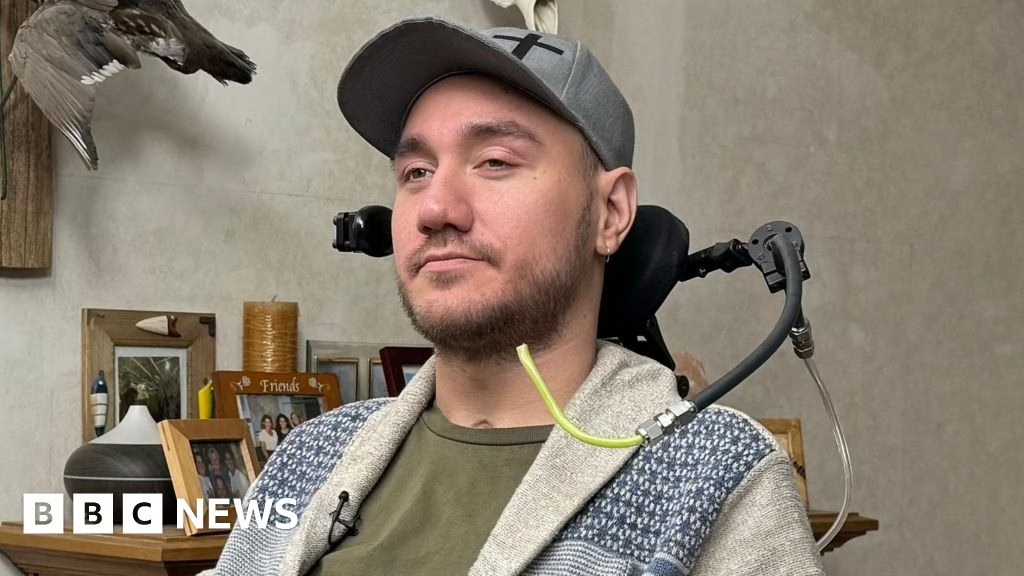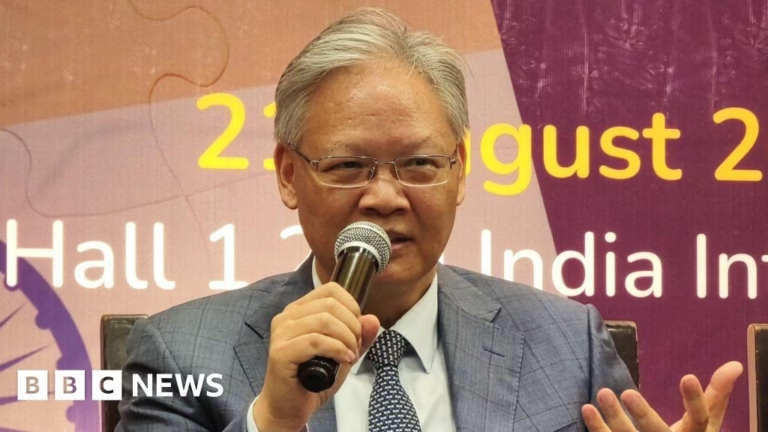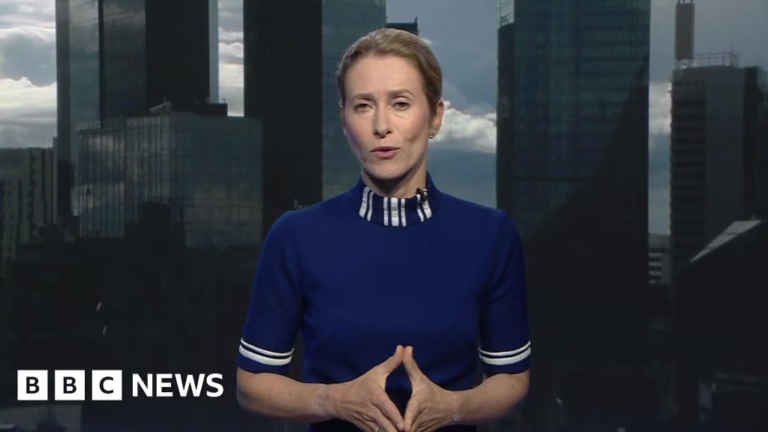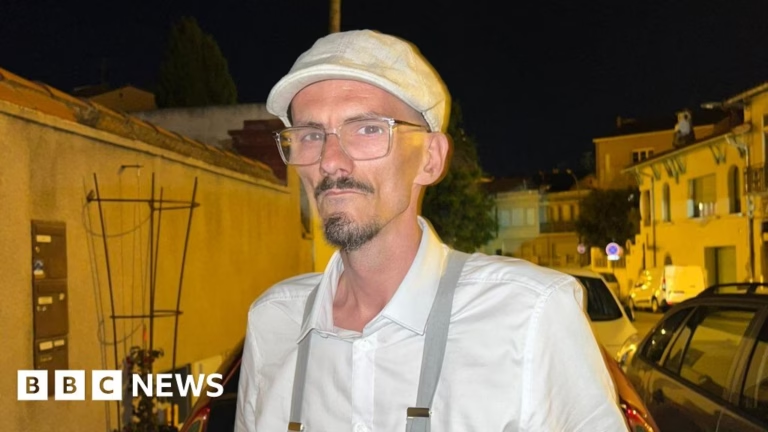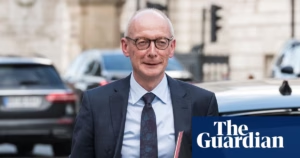BBC News
/live(6b5ae4a0-03dd-11f0-9b36-09a73999182b).webp)
BBC
Having a chip in your brain that can translate your thoughts into computer commands may sound like science fiction – but it is a reality for Noland Arbaugh.
In January 2024 – eight years after he was paralysed – the 30-year-old became the first person to get such a device from the US neurotechnology firm, Neuralink.
It was not the first such chip – a handful of other companies have also developed and implanted them – but Noland’s inevitably attracts more attention because of Neuralink’s founder: Elon Musk.
But Noland says the important thing is neither him nor Musk – but the science.
He told the BBC he knew the risks of what he was doing – but “good or bad, whatever may be, I would be helping”.
“If everything worked out, then I could help being a participant of Neuralink,” he said.
“If something terrible happened, I knew they would learn from it.”
‘No control, no privacy’
Noland, who is from Arizona, was paralysed below the shoulders in a diving accident in 2016.
His injuries were so severe he feared he might not be able to study, work or even play games again.
“You just have no control, no privacy, and it’s hard,” he said.
“You have to learn that you have to rely on other people for everything.”
The Neuralink chip looks to restore a fraction of his previous independence, by allowing him to control a computer with his mind.
It is what is known as a brain computer interface (BCI) – which works by detecting the tiny electrical impulses generated when humans think about moving, and translating these into digital command, such as moving a cursor on a screen.
It is a complex subject that scientists have been working on for several decades.
Inevitably, Elon Musk’s involvement in the field has catapulted the tech – and Noland Arbaugh – into the headlines.
It’s helped Neuralink attract lots of investment – as well as scrutiny over the safety and significance of what is an extremely invasive procedure.
When Noland’s implant was announced, experts hailed it as a “significant milestone”], while also cautioning that it would take time to really assess – especially given Musk’s adeptness at “generating publicity for his company.”
Musk was cagey in public at the time, simply writing in a social media post: “Initial results show promising neuron spike detection.”
In reality, Noland said, the billionaire – who he spoke to before and after his surgery – was far more optimistic.
“I think he was just as excited as I was to get started,” he said.
Nonetheless, he stresses that Neuralink is about more than its owner, and claims he does not consider it “an Elon Musk device”.
Whether the rest of the world sees it that way – especially given his increasingly controversial role in the US government] – remains to be seen.
But there is no questioning the impact the device has had on Noland’s life.
Additional reporting by Yasmin Morgan-Griffiths.



